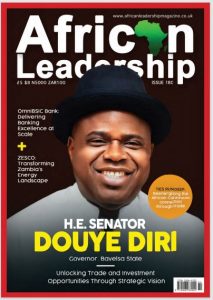To Muammar Gaddafi, the former Libyan leader, a unified Africa with a federal system, a single currency, a unified passport, and a shared military would represent a stronger and more resilient continent, capable of addressing its challenges without relying on external factors.
The continent could be well-suited for a common currency when considering the nature of supply shocks that the region experiences. The African economy, comprising 54 nations, was projected to be around US$2.7 trillion in nominal terms in 2021, according to Africa the Statistics Times. Africa’s growth has been influenced by commodity prices; the continent holds a third of the planet’s mineral resources, 10% of the world’s oil reserves, and produces nearly 70% of the global diamond trade.
Historical Context
The idea of a single African currency gained momentum with leaders like the late Libyan leader Muammar Gaddafi, who was a strong advocate for the “Gold Dinar.” This proposed currency aimed to replace the US dollar and Euro in African transactions, thereby reducing Western influence and promoting African economic independence.
Gaddafi’s vision was based on creating a gold-backed currency that would unify Africa economically, potentially leading to a continent-wide banking system independent of Western financial institutions. However, his ambitions faced resistance from Western powers, who feared the potential impact on the global economic order.
President Nana Akufo-Addo of Ghana has expressed support for the Eco, a proposed common currency for the West African Economic and Monetary Union (WAEMU). He views it as a stepping stone towards broader continental integration, highlighting the potential benefits of a unified economic zone.
Similarly, President Alassane Ouattara of Côte d’Ivoire has also shown enthusiasm for the Eco, believing it could enhance economic stability and growth in the region. Additionally, President Paul Kagame of Rwanda has emphasised the need for stronger economic unity in Africa, including the possibility of a single currency as part of the continent’s broader integration efforts.
The Journey of Implementation
The CFA franc is a single currency used by eight independent states in West Africa, which make up the West African Economic and Monetary Union: Benin, Burkina Faso, Côte d’Ivoire, Guinea-Bissau, Mali, Niger, Senegal, and Togo.
After decades of negotiations, fifteen countries in West Africa have agreed to adopt a single currency by 2027 called the ECO. The joint currency has been in development for 30 years, with the Economic Community of West African States (ECOWAS) announcing that the rollout will be gradual.
The move will see countries meeting the established criteria joining first, with the eight member states that currently use the CFA franc, which is backed by France, being closely monitored. Although experts are divided on the impact the ECO will have on the region’s economy, with some predicting benefits and others warning of potential risks.
Professor Lumumba P. L. O. (Kenya) argues that a single currency would strengthen Africa’s bargaining power globally and reduce dependence on foreign currencies. He believes it would facilitate easier intra-African trade and cooperation, marking a crucial step towards true African integration.
The Eurozone’s Single Currency vs. Africa’s Potential Unified Currency
The European Union’s experience with the Euro offers valuable insights into the potential outcomes of a unified currency in Africa. The Euro, introduced in 1999, facilitated trade across the Eurozone, eliminated exchange rate risks, and strengthened the EU’s global economic influence. However, the Eurozone also faced significant challenges, particularly during the Eurozone debt crisis.
Africa’s integration is still in its early stages, and a unified currency would require decades of economic and political integration. The African Union (AU) and regional economic communities like ECOWAS are working towards deeper integration, but political and economic diversity remains a significant barrier.
The Eurozone’s success was built on economic convergence, with similar levels of inflation, interest rates, and fiscal policies. In contrast, Africa is characterised by significant disparities in economic development, making it challenging to implement a unified currency. Nigeria and South Africa are economic powerhouses, while others have smaller, less diversified economies. Harmonising economic policies across these vastly different economies would be a substantial hurdle.
The introduction of the Euro involved a transfer of monetary sovereignty to the European Central Bank (ECB), which was crucial for managing the Euro. However, in Africa, ceding monetary control to a continental institution may face resistance. Countries with strong currencies or those benefiting from currency autonomy may be reluctant to relinquish control to a central African bank. This highlights the importance of addressing concerns around sovereignty and monetary policy in any attempt to implement a unified currency in Africa.
Projections and Possible Outcomes
If Africa were to successfully implement a unified currency, the potential benefits could be significant. Intra-African trade could see a substantial boost, as currency exchange costs and risks would be eliminated. This could lead to greater economic integration, making the African Continental Free Trade Area (AfCFTA) more effective. Additionally, a unified currency could enhance Africa’s bargaining power in international trade and finance, reducing its dependency on external currencies like the US dollar and the Euro.
Dr. Kingsley Moghalu (Nigeria), former Deputy Governor of the Central Bank of Nigeria, highlights the potential for a single currency to ease trade barriers, promote economic growth, and reduce currency exchange costs. This could enhance the competitiveness of African economies globally, making it an important step towards African economic integration.
However, the challenges are equally daunting. The success of such a currency would depend on achieving economic convergence, building robust institutions, and securing the political will to implement necessary reforms. The process would likely be gradual, starting with regional currencies like the Eco and eventually moving towards a continental currency.
As quoted by Dr. Vera Songwe (Cameroon), an economist and former Executive Secretary of the UN Economic Commission for Africa, a single currency could enhance regional trade and financial integration, particularly within blocs like ECOWAS. While economic structures vary widely, the long-term benefits of reduced transaction costs and increased financial stability could outweigh the initial challenges.
The experience of the Eurozone provides both a model and a cautionary tale, highlighting the need for careful planning and strong institutions. Africa’s diverse economies and political landscapes make the path to a single currency complex, but with concerted efforts, it could become a reality, bringing significant economic benefits to the continent.




